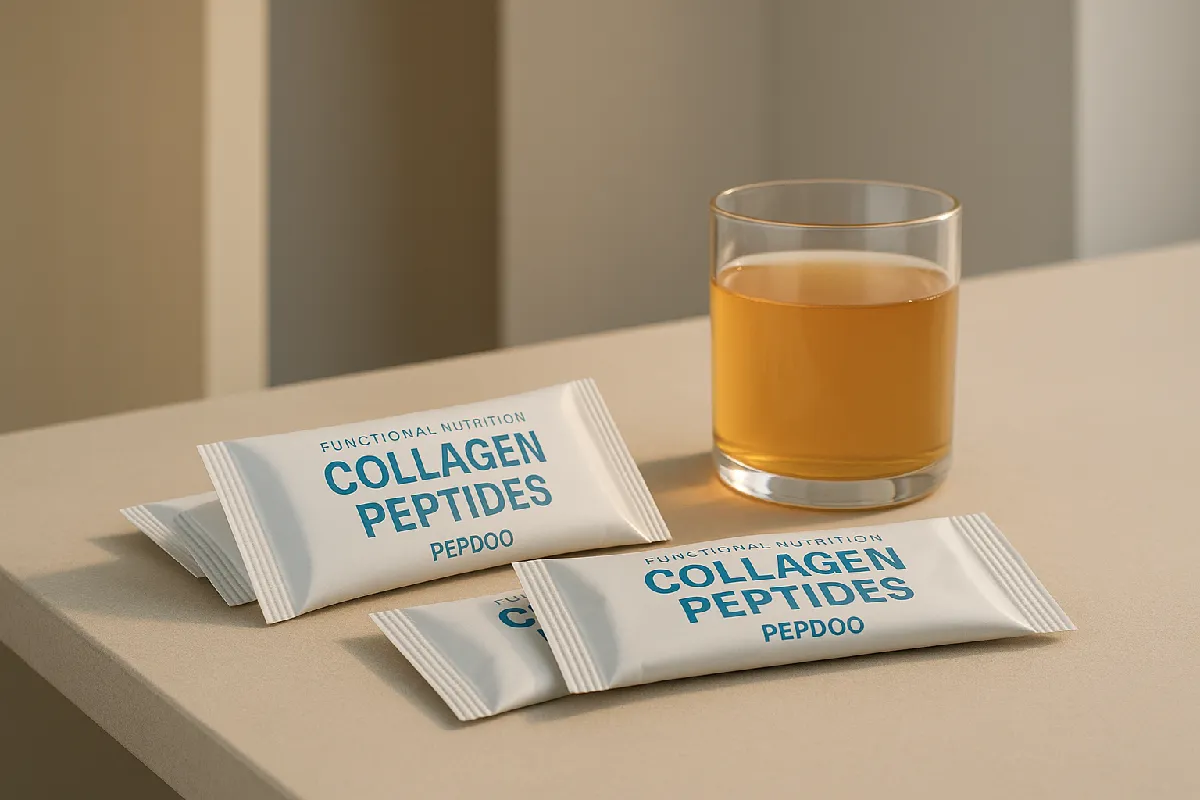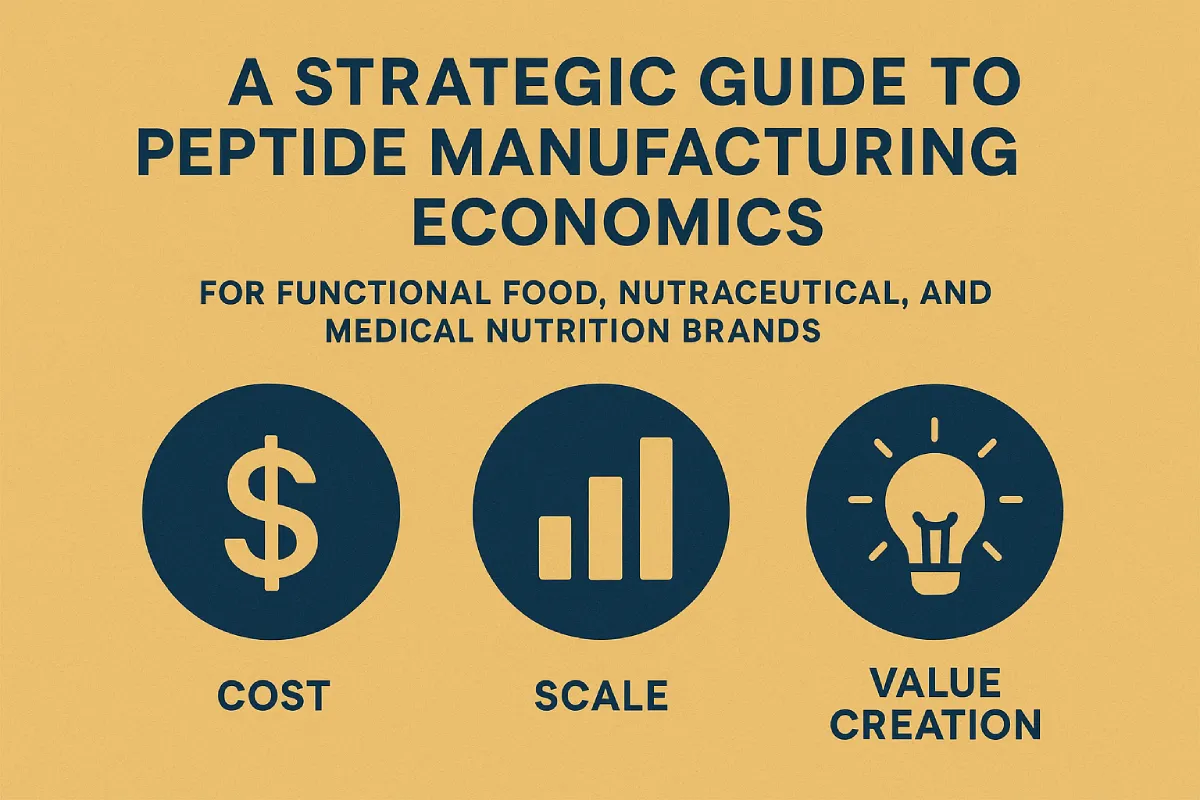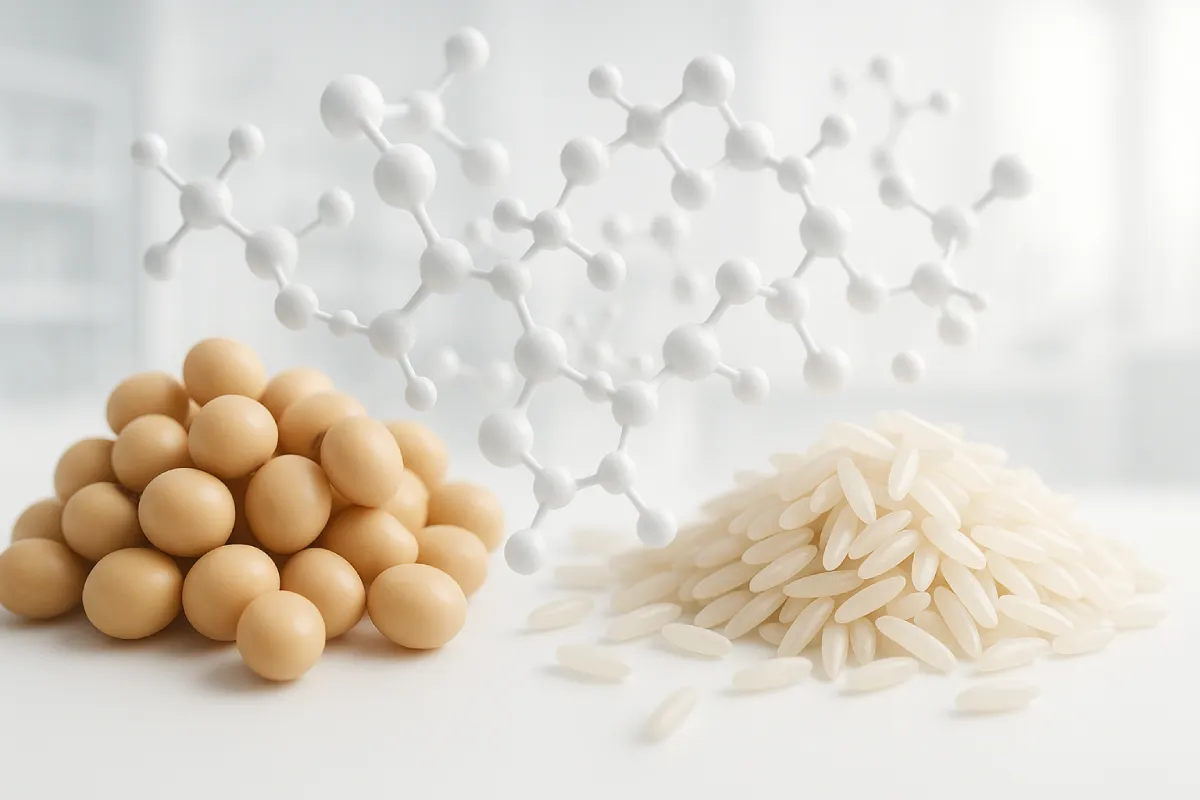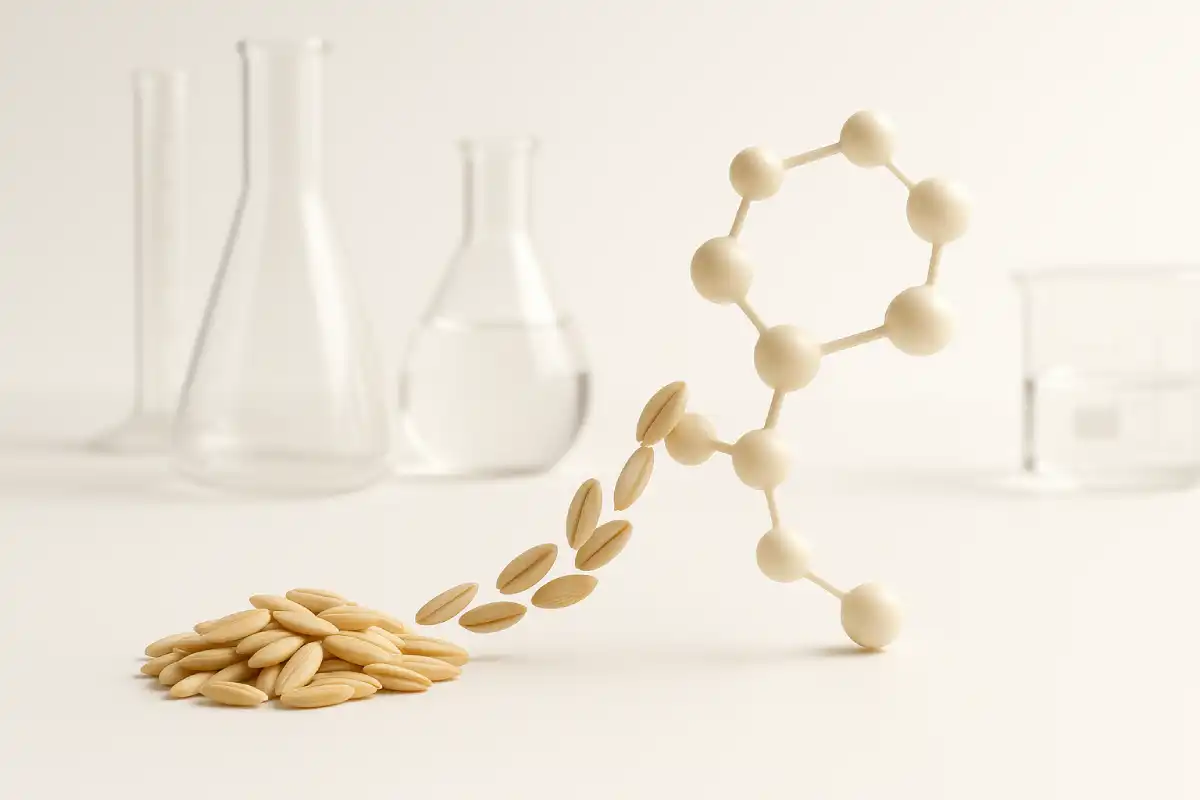Nutricosmetics on the Rise: A Market You Can’t Ignore
The global nutricosmetics market has witnessed remarkable growth over the last decade. With consumers increasingly seeking “beauty from within,” the demand for scientifically validated functional ingredients has expanded across dietary supplements, functional foods, and medical nutrition. According to industry reports, the nutricosmetic market is projected to grow at a CAGR of more than 8% through 2030, driven by consumer preference for natural, clinically proven bioactive ingredients [1].
For B2B stakeholders—including product developers, procurement teams, and marketing professionals—this shift presents both challenges and opportunities. While collagen peptides have dominated the landscape for years, s
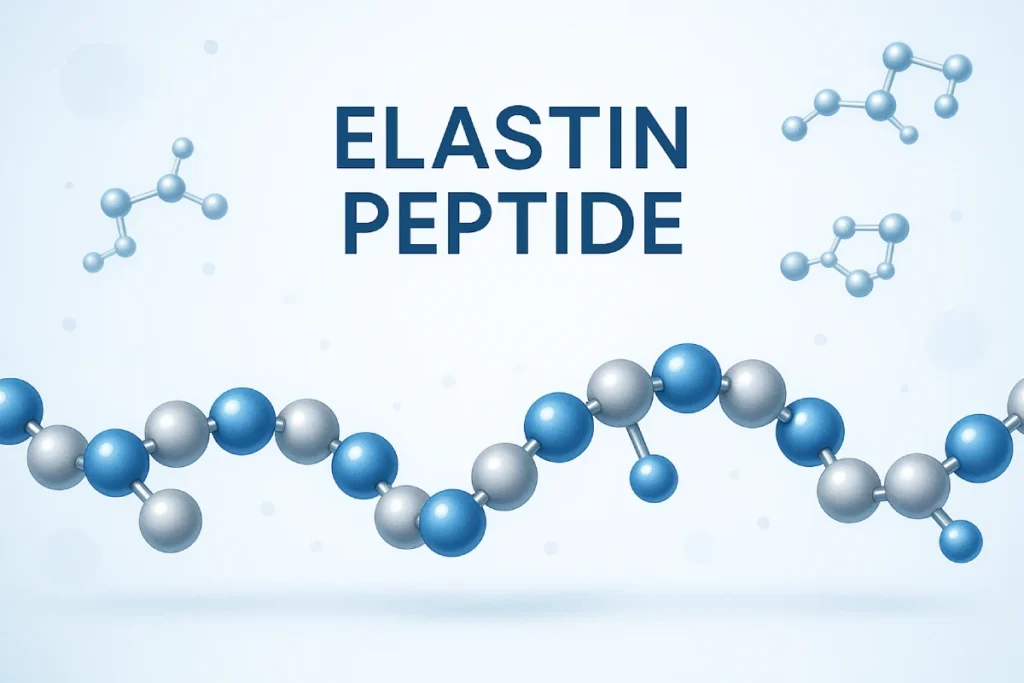
Elastin Peptides Explained: Beyond Collagen
Elastin is a key structural protein responsible for the elasticity and resilience of connective tissues, including skin, blood vessels, and ligaments. When enzymatically hydrolyzed, elastin yields elastin peptides, bioactive fragments with low molecular weight that are highly absorbable and functional.
Unlike collagen peptides, which primarily target dermal density and hydration, elastin peptides are directly associated with skin elasticity, wrinkle reduction, and tissue repair. This differentiation provides a unique positioning for elastin-based formulations in the crowded nutricosmetic market [2].
From an R&D perspective, elastin peptides allow brands to move beyond “me-too” collagen solutions and offer innovative, multi-functional beauty and wellness products.
The Science Behind Skin Elasticity
Scientific studies have demonstrated that elastin peptides stimulate fibroblast proliferation, promote elastin and collagen synthesis, and enhance skin elasticity [3]. These bioactivities make them particularly effective in addressing visible signs of aging, such as sagging skin and fine lines.
In one clinical trial, participants consuming elastin hydrolysate showed significant improvements in skin firmness and wrinkle depth reduction after eight weeks [4]. Animal studies have further suggested benefits for vascular flexibility and joint health, indicating that elastin peptides may also support broader applications beyond cosmetics.
For B2B companies, this growing body of scientific evidence provides the critical credibility needed to justify investment in elastin peptide–based formulations.
Case Studies: Elastin Peptides in Action
Several global brands have already capitalized on elastin peptides to differentiate their nutricosmetic portfolios:
- Japanese Beauty Drink Brand A: Incorporated elastin peptides into its top-selling collagen beverage. The combined “collagen + elastin” formula was marketed as offering both hydration and firmness benefits. Within one year, the product’s sales increased by over 20% in the domestic market.
- European Supplement Company B: Launched a dual-action capsule combining marine collagen peptides with elastin peptides. Positioned in pharmacy channels as an “anti-wrinkle and firming solution,” it quickly became one of their best-selling SKUs, with strong uptake among women over 35.
- Korean Functional Food Brand C: Developed a ready-to-drink nutricosmetic shot containing elastin peptides, hyaluronic acid, and vitamins. Targeted toward younger consumers via online channels, the product achieved high repeat purchase rates, especially among urban female professionals.
These cases illustrate how elastin peptides are not just a theoretical opportunity but a commercially viable innovation for brands seeking growth and differentiation.
Application Formats & R&D Potential
Elastin peptides are highly versatile, making them suitable for multiple product formats:
- Powders: Easy to incorporate into nutricosmetic powders or sachets.
- Capsules & Tablets: Standardized dosages for targeted supplementation.
- Beverages & Shots: Popular in Asia and increasingly in Europe, offering convenience and lifestyle appeal.
- Functional Foods: Integration into bars, gummies, and snacks for beauty-on-the-go.
In terms of formulation strategy, elastin peptides can be combined with:
- Collagen peptides (for hydration and density)
- Hyaluronic acid (for hydration and plumpness)
- Antioxidants and vitamins (for anti-aging and skin defense)
This opens opportunities for premium SKUs in the beauty and wellness category, targeting both preventive and corrective solutions.
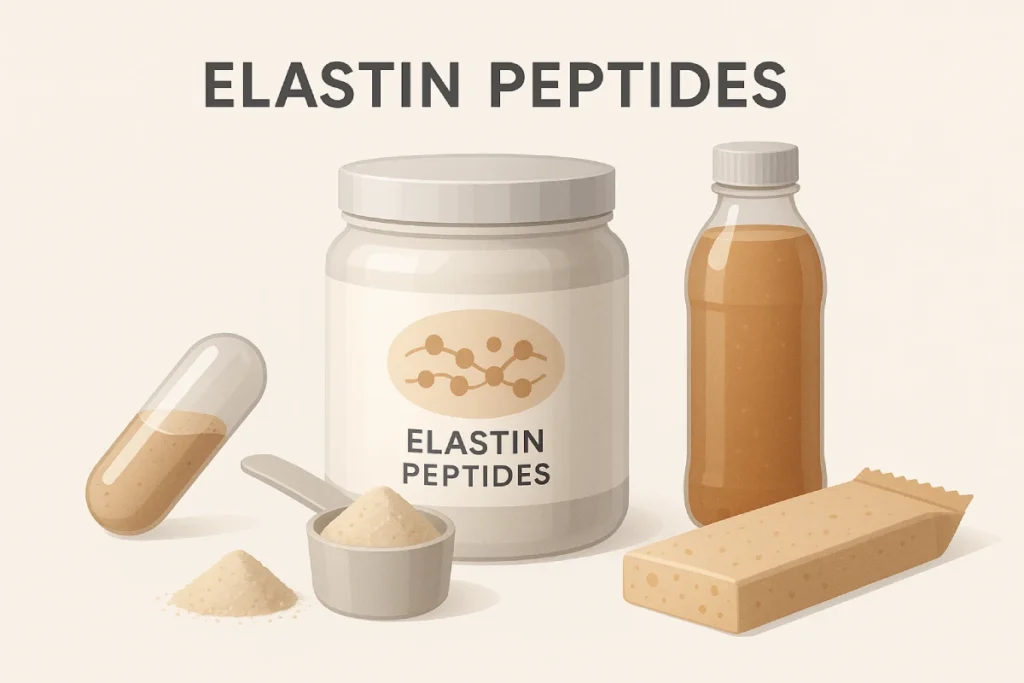
Market Opportunity: Why Elastin Peptides Are the Next Big Thing
The nutricosmetic market is moving from single-ingredient formulations toward multi-functional blends. Elastin peptides fill a clear market gap by addressing skin elasticity—a critical parameter not fully covered by collagen alone.
Moreover, today’s consumers are increasingly savvy, demanding transparency, clinical validation, and innovation. For B2B companies, leveraging elastin peptides allows for:
- Differentiation in an oversaturated collagen market.
- Premium positioning through science-backed claims.
- Expansion into diverse applications, from anti-aging to joint health.
In short, elastin peptides represent a powerful innovation driver for the next wave of nutricosmetic product development.
Why Partner with a Trusted Elastin Peptide Manufacturer?
While elastin peptides offer exciting potential, quality and consistency are critical to commercial success. Common challenges include raw material sourcing, batch-to-batch uniformity, regulatory compliance, and clinical validation.
As a leading elastin peptide manufacturer, PEPDOO® provides:
- Direct factory supply: Ensuring consistent quality and competitive pricing.
- Patented enzymatic hydrolysis technologies: Delivering high bioavailability and targeted functionality.
- Full peptide portfolio: Covering elastin, collagen, soy, oyster, rice, and other functional peptides.
- International certifications: GMP, ISO, FSSC22000, and more, guaranteeing global compliance.
- R&D collaboration: Custom blends and formulation support for brand innovation.
For B2B stakeholders, partnering with an experienced peptide supplier ensures smoother product development, faster market launch, and stronger brand credibility.
Key Takeaways & Next Steps
Elastin peptides are emerging as the next big ingredient in nutricosmetics, offering proven benefits for skin elasticity, anti-aging, and beyond. For B2B brands in functional foods, dietary supplements, and medical nutrition, they represent a strategic opportunity to innovate, differentiate, and capture consumer demand.
The time to act is now. By collaborating with a trusted elastin peptide manufacturer, companies can secure reliable supply, leverage cutting-edge technology, and bring unique, high-value products to market.
Partner with a Leading Elastin Peptide Manufacturer
Unlock innovative nutricosmetic formulations with high-quality elastin peptides and expert R&D support.
Request a SampleFAQ
Elastin peptides are bioactive fragments derived from elastin, targeting skin elasticity, wrinkle reduction, and tissue repair, unlike collagen peptides which mainly support hydration and dermal density.
They can be formulated into powders, capsules, tablets, ready-to-drink shots, and functional foods, and combined with collagen, hyaluronic acid, or vitamins for multi-functional benefits.
Elastin peptides improve skin firmness and elasticity, reduce wrinkles, stimulate fibroblast activity, and may support joint and vascular health.
They offer differentiation in a saturated collagen market, scientific credibility with clinical evidence, and innovation opportunities for multi-functional nutricosmetic products.
Key factors: raw material quality, patented hydrolysis technology, full peptide portfolio, regulatory compliance (GMP, ISO, FSSC22000), and R&D support for custom formulations.
Yes. High-quality elastin peptides can meet FDA, EFSA, and other international regulations, with CoA, safety documentation, and allergen information provided.
Yes. Common combinations include collagen peptides, hyaluronic acid, antioxidants, and vitamins to enhance efficacy and create multi-benefit products.
They allow brands to highlight scientifically backed skin elasticity benefits, differentiate from collagen products, and appeal to premium, health-conscious consumers.
References
- Grand View Research. (2023). Nutricosmetics market size, share & trends analysis report.
- Nakazawa, Y., & Ohta, N. (2019). Elastin-derived peptides: Biological activities and potential applications in aging and regenerative medicine. International Journal of Molecular Sciences, 20(18), 4521.
- Bochicchio, B., et al. (2017). Role of elastin peptides in fibroblast activation. Matrix Biology, 63, 29–37.
- Kumagai, H., et al. (2016). Oral intake of elastin hydrolysate improves skin elasticity and reduces wrinkles: A randomized, double-blind, placebo-controlled clinical trial. Journal of Nutritional Science and Vitaminology, 62(2), 135–142.


